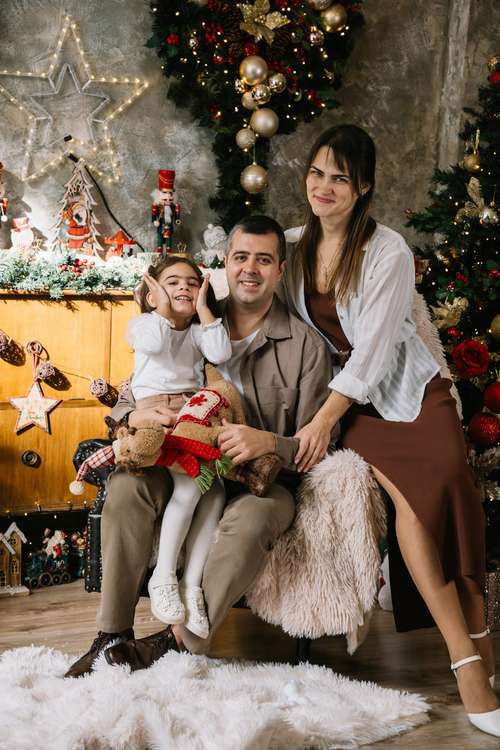Navigating Family Gift-Giving Expectations
Family gatherings and celebrations are the heart of our lives, but when it comes to giving gifts, things can quickly become overwhelming. The obligation to buy birthday or holiday gifts for a large number of nieces, nephews, and other relatives can feel less like a joyful tradition and more like a financial and emotional burden. We all want to show our appreciation and love, yet many of us wonder if there is a way to balance these expectations without stretching our budgets too thin.
Sometimes, it feels like every occasion turns into a shopping marathon. Ever find yourself stuck with a growing list of names and little ideas yet no strong desire to break the bank? The challenge is real, and the pressure of family gift-giving expectations can lead to holiday stress. Let's explore how we can navigate these tricky waters while honoring our family traditions and personal limitations.
Understanding the Pressure of Family Gift-Giving
Family gift-giving expectations can be as complicated as a well-organized family reunion. In this section, we dive deep into understanding where the pressure comes from and why so many of us feel obligated to go above and beyond, even when it may not be sustainable. This is a common challenge that many of us face annually.
Many families have long-standing traditions where every birthday, holiday, or milestone is celebrated with a thoughtful gift. While these traditions help create cherished memories, the pressure to maintain such an image can be overwhelming. The sentiment behind these practices is usually pure, aiming to express love and care for family members. However, as the family grows larger, the number of potential gifts can multiply, making even holiday shopping feel like a marathon without an end in sight.
In some families, the expectation for meaningful and often expensive gifts becomes a sort of unspoken rule. It starts as a gentle nudge and can soon feel like a rule set in stone by years of accumulated traditions. This pressure is not just about the monetary value but also about living up to an ideal of showing care in a very tangible way. It's important to recognize that this pressure is real, and feeling burdened by it is completely normal.
Setting Personal Boundaries and Managing Expectations
Imagine juggling a dozen different gift obligations every month – it's easy to feel like you're caught in a never-ending cycle. This section focuses on how to set personal boundaries while managing gift-giving expectations in a way that respects both your finances and your family relationships.
Firstly, it's essential to honestly assess your own limits. Family gift-giving is meant to be a gesture of love, not a source of anxiety. Determining what you can comfortably afford without compromising other aspects of your life is key. Once you have a clear picture of your budget, sharing your perspective with family members can sometimes challenge the notion that expensive gifts are the only way to show affection.
Sometimes, a simple conversation can make a world of difference. Letting your relatives know that while you cherish your traditions, you also need to manage your spending can help reset expectations. After all, thoughtful gifts aren’t defined by their price tag but by the time and effort behind them. Setting boundaries can also mean deciding on a fixed budget per gift or even skipping some celebrations if they’re not as significant to you.
It's a delicate balance between maintaining family relationships and protecting your own wellbeing. We often fear that by lowering our standards, we might hurt someone's feelings, but many family members appreciate honesty over extravagant spending. It’s all about finding the sweet spot that allows you to celebrate without undue stress.
Exploring Creative and Budget-Friendly Gift Solutions
Not every family gift has to come with a hefty price tag. Here, we explore some creative ways to ensure your gifts remain meaningful without breaking the bank. There’s a whole world of budget-friendly gifts waiting to be discovered.
DIY projects, personalized gifts, and even experiences can be a refreshing departure from the typical store-bought presents. Think of it as an opportunity to make your gift stand out by incorporating personal touches that resonate with the recipient. A handmade craft or a personalized item can speak volumes and show that you've given thought and care to your gift.
In addition, planning your gift shopping ahead of time can help avoid that last-minute rush, which often leads to overspending. Creating a gift plan that lists out each person along with a set budget can simplify the process and reduce holiday stress. Sometimes, planning ahead can even turn shopping into an enjoyable pre-holiday tradition.
Gift exchanges are a popular option in many families. Instead of individual gifts for everyone, a group gift or a Secret Santa arrangement can cut down on the number of purchases while still spreading holiday cheer. This idea not only saves money but also builds anticipation and fun as everyone awaits a surprise from another family member.
Ultimately, it comes down to being creative. By reimagining what gift-giving means, we can focus on the connection shared rather than the cost, making each gift a symbol of care and respect for family traditions.
Communicating Openly About Gift-Giving Expectations
When expectations run high, communication becomes the most important tool. This final section is all about how to talk to your family about your gift-giving concerns and ensure that everyone's on the same page. Honest conversations can ease the tension and help redefine what family gifts mean to you and yours.
It might feel uncomfortable at first, but initiating a discussion during a calm moment – perhaps over coffee or during a quiet family dinner – can help open up new ways of thinking about gift-giving. Explaining that your focus is on meaningful gifts rather than expensive items can prevent misunderstandings and hurt feelings in the long run. For example, you might say, 'I love our family traditions, but I believe that a thoughtful gesture can sometimes speak louder than a lavish purchase.'
Family dynamics are constantly evolving, and so should our traditions. Having an open dialogue about these changes can allow everyone to contribute ideas. When each member understands the constraints and the creative alternatives available, the overall pressure eases, and the focus shifts back to celebrating each other.
In some cases, agreeing on a family-wide budget or suggesting a rotation of who gives gifts each year can be effective strategies. When everyone participates in the decision-making process, you foster an atmosphere of shared responsibility and mutual understanding. Open communication is the key to managing gift-giving expectations without letting them become a source of stress.
Conclusion: Balancing Tradition with Reality
In the end, navigating family gift-giving expectations isn’t about abandoning long-held traditions—it’s about evolving them. By understanding the roots of the pressure, setting clear personal boundaries, exploring creative and budget-friendly options, and communicating openly with your family, you can ensure that your holiday celebrations remain joyful and stress-free.
Remember, the essence of family gifts lies in the thoughtfulness behind them. Whether it's a handmade item, a shared experience, or even just a heartfelt note, the best gift is one that truly reflects the love and respect you have for your family. So next time the list of gift recipients seems endless, take a deep breath and remember that sometimes less truly is more.
Ultimately, finding that balance between maintaining family traditions and preserving your personal well-being is key. Focus on quality and meaning rather than quantity, and you’ll discover that the true spirit of the holiday season lies in the connections you nurture with your loved ones.




